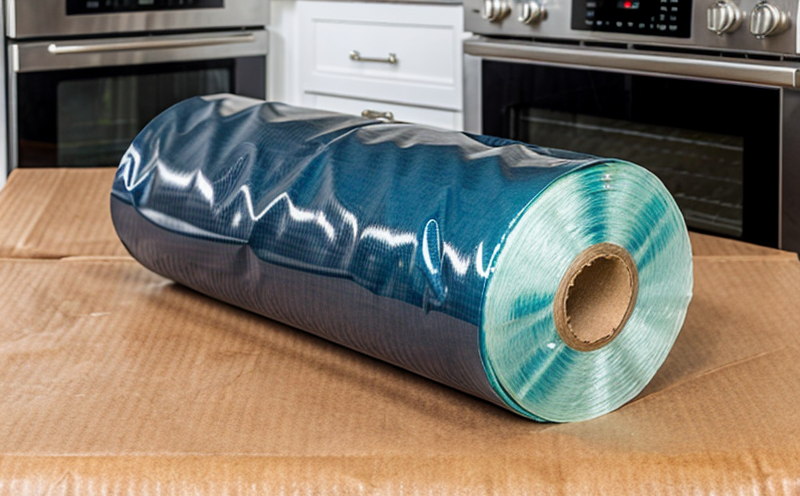IEC 60068-2-14 Thermal Cycling Testing of Household Plastic Covers
The International Electrotechnical Commission (IEC) Standard IEC 60068-2-14 specifies the procedures for determining the resistance to thermal cycling of materials and products. This test is crucial in evaluating the durability, performance, and reliability of household plastic covers under varying temperature conditions. Household plastic covers are essential components used in various applications such as electrical enclosures, insulation materials, and protective coatings.
The standard provides a systematic approach to subjecting specimens to controlled cycles of heating and cooling. This method helps identify potential weaknesses or failures that may occur due to thermal stress over time. The test is particularly relevant for products exposed to extreme temperature changes, such as those used in outdoor environments or within HVAC systems.
Thermal cycling tests are conducted by subjecting specimens to a series of defined temperature cycles. Typically, these involve alternating between high and low temperatures at specified rates. The number of cycles varies depending on the specific requirements set forth in IEC 60068-2-14. Specimens undergo rigorous testing to ensure they maintain their integrity and functionality throughout the prescribed thermal cycling conditions.
The process begins with selecting appropriate specimens made from household plastic covers. These samples are prepared according to the standard's guidelines, ensuring uniformity across all test subjects. Once prepared, specimens are placed into a controlled environment where temperature changes occur systematically. The equipment used for this purpose includes climate chambers capable of precise temperature control and monitoring.
During thermal cycling tests, it is essential to monitor critical parameters such as temperature stability, duration of each phase, and environmental conditions within the chamber. Compliance with IEC 60068-2-14 ensures accurate results that reflect real-world usage scenarios accurately. After completing all prescribed cycles, specimens are inspected for any signs of damage or degradation.
IEC 60068-2-14 Thermal Cycling Testing of Household Plastic Covers provides valuable insights into the long-term performance and reliability of these materials under fluctuating temperatures. By adhering to this standard during product development stages, manufacturers can make informed decisions about material selection and design optimization.
Understanding how different types of household plastic covers behave under thermal cycling conditions is crucial for ensuring consistent quality across various applications. This knowledge allows industry professionals to identify suitable materials that meet stringent performance criteria while minimizing risks associated with potential failures caused by thermal stress.
Why Choose This Test
- Ensures Compliance: Adherence to international standards like IEC 60068-2-14 guarantees that your products meet industry-wide acceptance criteria.
- Enhances Durability: By subjecting household plastic covers to thermal cycling tests, you can improve their resistance against environmental factors such as humidity and temperature fluctuations.
- Promotes Reliability: Testing according to this standard helps ensure that your products perform consistently over extended periods without compromising safety or functionality.
- Achieves Consistency: Repeated tests under controlled conditions help maintain consistent quality levels throughout production runs.
- Supports Innovation: Understanding the behavior of materials through rigorous testing encourages continuous improvement in product design and manufacturing processes.
Quality and Reliability Assurance
- Standardized Procedures: IEC 60068-2-14 provides clear guidelines on how to conduct thermal cycling tests, ensuring consistency in methodology across laboratories.
- Data Integrity: Accurate data collection and analysis are vital for interpreting test results correctly. Compliance with the standard ensures reliable interpretations of outcomes.
The IEC 60068-2-14 Thermal Cycling Testing of Household Plastic Covers is an indispensable tool in quality assurance programs aimed at enhancing product reliability and longevity. It serves as a benchmark against which manufacturers can evaluate their offerings, ensuring they meet or exceed customer expectations.
International Acceptance and Recognition
The IEC 60068-2-14 Thermal Cycling Testing of Household Plastic Covers enjoys widespread recognition among industries worldwide. Its acceptance stems from its rigorous approach to evaluating material performance under extreme temperature conditions, making it a preferred choice for manufacturers seeking to demonstrate compliance with international standards.
Many regulatory bodies and certification organizations around the globe accept results derived from this test method as valid evidence of product quality. This broad-based acceptance ensures that your testing efforts are recognized globally, facilitating easier market entry into different regions.
By incorporating IEC 60068-2-14 Thermal Cycling Testing into your quality assurance protocols, you not only enhance the reliability and durability of household plastic covers but also position yourself as a leader in innovation and excellence within the industry. This standard serves as an essential step towards achieving international acceptance and recognition for your products.





